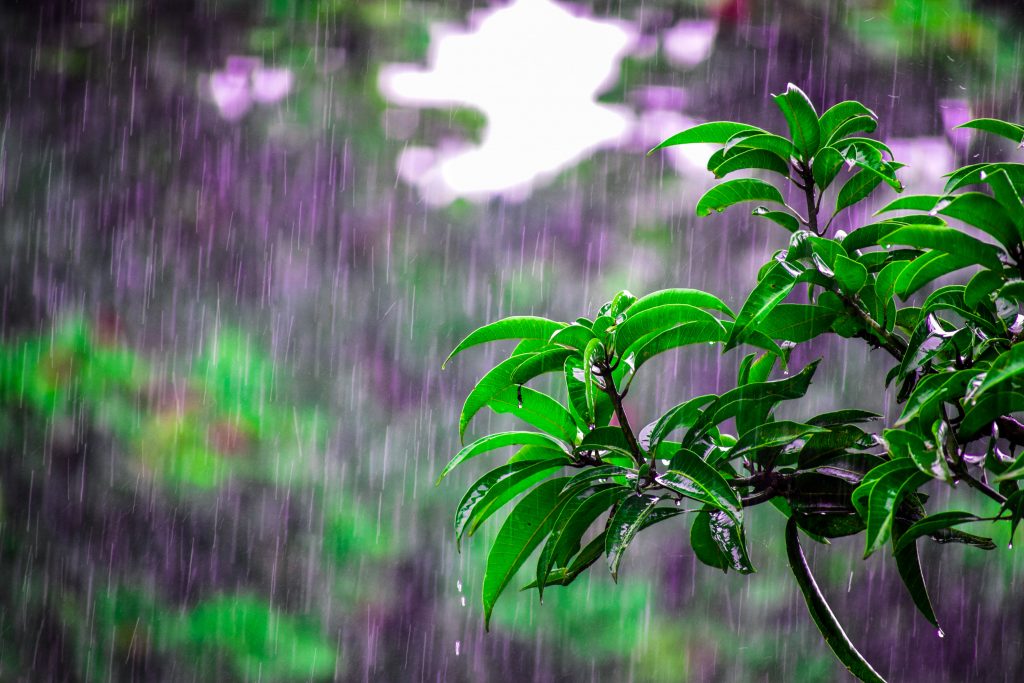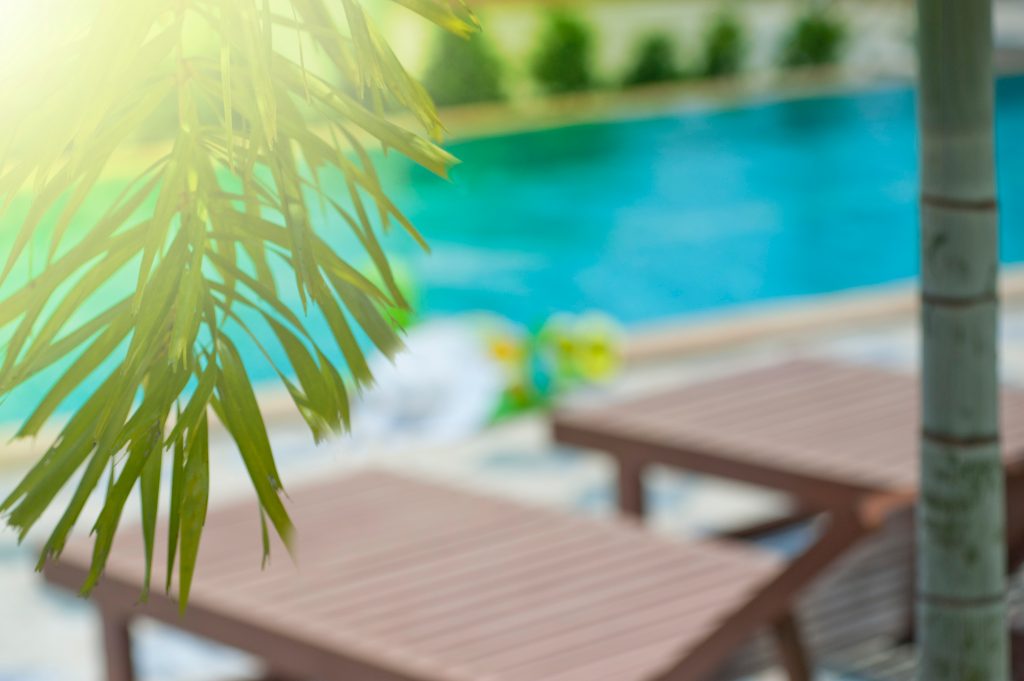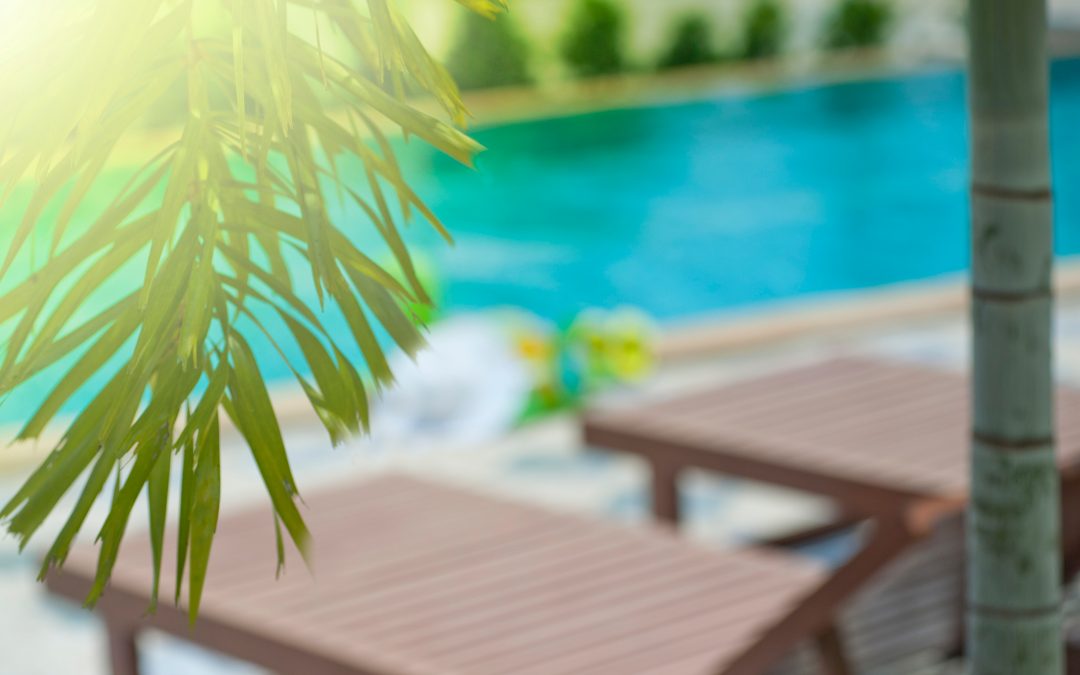Rainstorms, monsoons and hurricanes can all wreak havoc on your swimming pool. If you have advance warning of a storm, you can prepare and protect your swimming pool from the dangers a storm can pose to your family swimming pool. Sometimes, though you have no warning and storms blast their way through bringing high winds and powerful rains.
Your swimming pool contractor will likely be busy following a rain storm or hurricane or monsoon, but that doesn’t mean you don’t want to call him as soon as possible to get on his schedule for a pool cleaning following the storm. A storm can cause catastrophic damage to the area in which you live, your home and your swimming pool.
Caring for your pool before hand and immediately afterward can mean the difference between a pool that is usable in short order or a pool that may require time and money being spent on it. When this happens, chances are, the pool will not be usable or swimmable for some time.
Caring For Your Swimming Pool Post-Storm
 Once the storm has passed, you will want to assess the damage caused and start the process of cleaning up. There are some steps that make sense following a storm: test the water chemistry balances and add those that are necessary to bring it back in balance. Other clean-up efforts though may not be as easily performed. In fact, there are some mistakes you may make during post-storm clean up that can cause more damage than good.
Once the storm has passed, you will want to assess the damage caused and start the process of cleaning up. There are some steps that make sense following a storm: test the water chemistry balances and add those that are necessary to bring it back in balance. Other clean-up efforts though may not be as easily performed. In fact, there are some mistakes you may make during post-storm clean up that can cause more damage than good.
Your pool contractor will urge you to avoid doing any of these items below when you’re in storm clean up mode.
Not using protection. You may be gung-ho to clean up the pool following the storm but we urge you to wear protection when doing that. You can, and will want to, clear out floating debris and large items from the swimming pool. If you didn’t have any warning of the storm’s arrival and your swimming pool is now home to lawn furniture and other items that were surrounding the pool, you definitely need to clear that out. Any items left floating in the swimming pool have the potential to damage the pool’s interior.
Wear waterproof gloves when removing items from the swimming pool. The water could be full of dangerous micro organisms and toxins that you don’t want to expose your skin to.
Don’t jump into the pool and remove dirt and debris. You don’t know what is on the bottom of the pool, you could get step on something and get injured. Also, if you have a vinyl liner or fiberglass pool you could step on something — a tree branch for example — that could damage the pool interior.
If you can’t see the bottom of the pool, don’t run the pool vacuum, either. You don’t want to suck something into the vacuum that will damage the device.
Don’t drain the pool. Even if your swimming pool is overflowing now because of the storm, draining the pool — especially into a yard that is already saturated with water — can cause damage. You may think it will be easier to drain the pool and refill it with clean water after the storm, but you run the risk of damaging the pool beyond repair.
When a swimming pool is drained — even if you only drain five or six inches — you run the risk of the pool floating out of its excavated space. If this happens it could rip out the plumbing and electrical out. The reason the pool could shift is that it’s held into its space because the water is exerting continual pressure on the sides and bottom of the pool. The water inside is heavy so it isn’t harmed by the earth that is pressing against it. Once you drain the water though you’re counteracting that delicate balance and the shell will float.
Add rain-drenched ground following the flood or rain and you have groundwater seeping under the pool — or even partially drained pool; this leads to the pool structure floating. It could even pop right out of its space.
 If your pool truly does need to be drained, you will want to work with a swimming pool professional. He will also advise waiting until the ground is dry.
If your pool truly does need to be drained, you will want to work with a swimming pool professional. He will also advise waiting until the ground is dry.
Don’t use the automatic pool cleaner yet. If you haven’t already, turn off the electricity to the pool and make certain the automatic pool cleaner isn’t scheduled to run before the pool is ready for it! Don’t run the automatic pool cleaner until you can see the bottom of the pool.
The heavy workload of cleaning mud and dirt and debris from the bottom of the pool after the storm will be too taxing for the cleaner and can damage it. Debris could also destroy the vacuum hoses by tearing holes in it.
When you use an automatic pool cleaner it will also stir up the debris that may have settled to the bottom of the pool and that will keep them floating in the water and make the entire process even more difficult. You will want to — or your pool contractor will — manually run a vacuum once the larger pieces of debris have been removed.
It is easier to perform pool clean up when the debris has settled.
Do not turn on the electricity. Never flip a switch to turn the pool equipment back on once the storm has passed until the electrical system and the components have been inspected. Remember water and electricity NEVER mix. You run the risk of harm or death if you don’t know what you’re doing when it comes to the pool’s electricity.
If you had warning the storm was coming, turn off the breakers and the electricity to the pool. If you weren’t home or didn’t have prior warning or if the power went out during the storm, we urge you Do NOT turn any of this equipment back on.
Running the pump. You will need to run the pump for up to twenty four hours a day for many, many days following the storm — or until the pool water is clear. during the first few days of the post storm clean up the skimmer basket and the filter will get full, fast. As you’re running the pump around the clock you will need to remember to go and clean the skimmer, filter and pump basket regularly — every few hours in the beginning.
If you don’t continually clean the pump, skimmer basket and filter the components will overflow and the performance will suffer and that can clog the equipment. Once that happens the pump motor could overheat, burnout and be damaged or destroyed.
Post storm clean up care is crucial to pool survival
You definitely don’t want to leave your swimming pool as a murky mess until the pool contractor arrives, but you need to be smart about its clean up following the storm.
Practice patience. You will likely not be able
Be smart cleaning up after a major storm
It takes patience and persistence to clean up your swimming pool after a major storm or hurricane. Be strategic in post storm clean up. If you have to wait a few days or a week before your pool contractor can get to you and help with post storm clean up, ask him what steps you can take to prevent any further damage to your pool while you wait.

